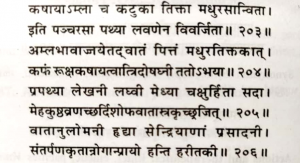How to Beat Morning Sickness Through Herbs?
Have you ever feels queasy, uneasy that makes you sick? Whether it is related to acid reflux, pregnancy or due to motion sickness, nausea can damp you down.
What is Morning Sickness?
As Per Ayurveda Aspect
In Ayurveda, morning sickness is an ‘Annavaha srotas vikar’. It is caused due to the vitiation of pitta and kapha dosha which inturn vitiates the vata dosha which forces the dosha to move in an upward direction and leads to morning sickness.
As Per Modern Aspect
Morning sickness is a condition in which the person feels tired, nauseous and they may vomit. This condition is also called as nausea gravidarum. It affects around 80% of pregnant women, especially those who use hormonal contraception. It can occur at any age and at any time of the day.
What are the Causes of Morning Sickness?
The main cause of morning sickness is not clear. There may be persistent or severe vomiting or nausea which is rarely caused by a medical condition unrelated to pregnancy such as liver disease or thyroid.
Some other causes that can affect any age group:
- High level of hormones in the body which includes estrogen
- Fluctuation in the blood pressure levels.
- Altered metabolism of carbohydrates.
- Any physical or chemical changes that trigger the pregnancy
What are the Symptoms of Morning Sickness?
Some common symptoms of morning sickness are:
- Nausea
- Vomiting
- Loss of appetite
- Psychological effects such as anxiety and depression
Herbs used in the Treatment of Morning Sickness
-
Amla (Gooseberry)
According to Ayurveda, amla pacifies the tridoshas in the body. Being sour in taste it addresses the increased Vata dosha and due to its cold potency, it pacifies the aggravated Pitta Dosha. The vitiated Kapha dosha gets pacified by its qualities such as astringent and dry nature. Thus, amla is helpful in treating morning sickness. It is also beneficial in urinary disorders such as dysuria. As per Ayurveda it is an effective herb for prameha. This herb acts as a tonic that maintains the vision, skin complexion, strength, etc. It improves the virility and lifespan of an individual when it is taken in the prescribed dosage.
-
Spirulina
Spirulina is a natural powerhouse that has many health benefits such as boosts up the immune system, prevents grating of hair, improves eyesight, stamina, and hemoglobin, reduces the wear and tear in the body, prevents the quick aging and maintains the healthy cardiovascular functions. This herb is rich in vitamin B12 and iron. It has a strong anti-oxidant as well as immune boosting property that prevents the body from infections and treats symptoms like nausea, vomiting, fatigue etc.
-
Shatavari
Shatavari is referred to as Indian asparagus. Its root is used to treat urinary tract infections and it acts as a blood purifier and also helps to nourish the female reproductive organs. This herb helps in decreasing the inflammation of female sexual organs. It is considered to be the most vital herb for females as it balances the female hormonal system.
-
Vidanga
Vidanga is the most powerful herb thatis used against intestinal worm infestation which causes the morning sickness and other symptoms such as vomiting, nausea etc. Because of its hot potency, it balances Vata and Kapha Dosha. It is used as a blood detoxifier hence it is useful in a wide range of skin disorders. It has mild diuretic action which is helpful in dysuria thus, removes the toxins from the body.
-
Ginger
Ginger improves the taste which is useful in relieving anorexia, vomiting and nausea. In Ayurveda, this herb balances Kapha dosha which is useful in productive cough and asthma. Its dry form is the promoter of digestion, unctuous, hot potency balances Vata and Kapha Dosha. According to bhavprakaash, ginger is absorbent in nature and is a mild laxative. It breaks down the stool into small pieces by its piercing quality.
-
Haritaki
Hartaki is an effective herb used for relieving flatulence and acidity. It suppresses the acid formation and neutralizes its effects. Being a mild laxative, it relieves constipation. Fruit paste of this herb is used to reduce inflammation and heals the non-healing wounds quickly. According to Ayurveda, it pacifies all the three doshas i.e. vata, pitta and kapha. It acts as a nerve tonic which is effective in nervous weakness and promotes the power of senses. As per our classics the quotation goes as –

(Reference: Dhanvantari nighantu: shloka no. 203-206)
In this shloka actions and therapeutic uses of haritaki are explained.
Haritaki is astringent, sour, pungent, bitter and sweet in taste. This herb pacifies vata, pitta and kapha dosha, sets up emaciation, light, beneficial for eyes, cures polyuria, leprosy, emesis, edema, gout and dysuria. It also acts as a carminative, beneficial for heart and treats obesity.

-
Pippali
In the cases of low appetite and indigestion, pippali is very useful. This herb provides strength to the digestive system and promotes the digestive fire that relieves nausea, weakness which is caused due to morning sickness. Have a sweet taste after the digestion. This herb stimulates the pancreas, liver, and intestines to secrete digestive juices. In Ayurveda, it pacifies Vata and Kapha dosha and also helpful in treating diabetes, asthma, cough, piles and spleen disorders.
- Bibhitaki
Bibhitaki is a herb among Triphala which is laxative. This herb helps to treat thirst, loss of appetite, abdominal bloating and flatulence, worm infestations and piles. Seeds oil of this herb is beneficial for skin disorders and premature graying of hair. it boosts up the hair growth and also imparts a black color to the hair. Being an expectorant it relieves the blocked phlegm and also useful in cough, asthma, common cold and hoarseness of voice. As it pacifies Kapha dosha it helps to maintain the body’s health.
-
Sounf (Fennel)
Sounf is a very beneficial herb that promotes the health of large intestine (pakvashay) and stomach (amashay). This herb helps to stimulate the low digestive fire and allows the secretion of enzymes that are essential for the digestion process. In Ayurveda, it is considered as the most effective herb that balances the pachka Agni in amashya. It also pacifies the aggravated Vata dosha and maintains its balance. Its leaves are aromatic as it increases the volume of urine and stimulates the sweating in the body.
-
Jeerak (Cumin)
According to the Ayurveda system of medicine, it is a kaphavatahara that pacifies the vitiated Vata and Kapha dosha in the body. This herb is considered as a medicine as it supports the body functions and has effective properties such as astringent, carminative, aromatic and stimulative. Being a heart tonic it prevents the heart- diseases and gives stamina and strength.’
All these mentioned herbs are helpful to beat morning sickness.





